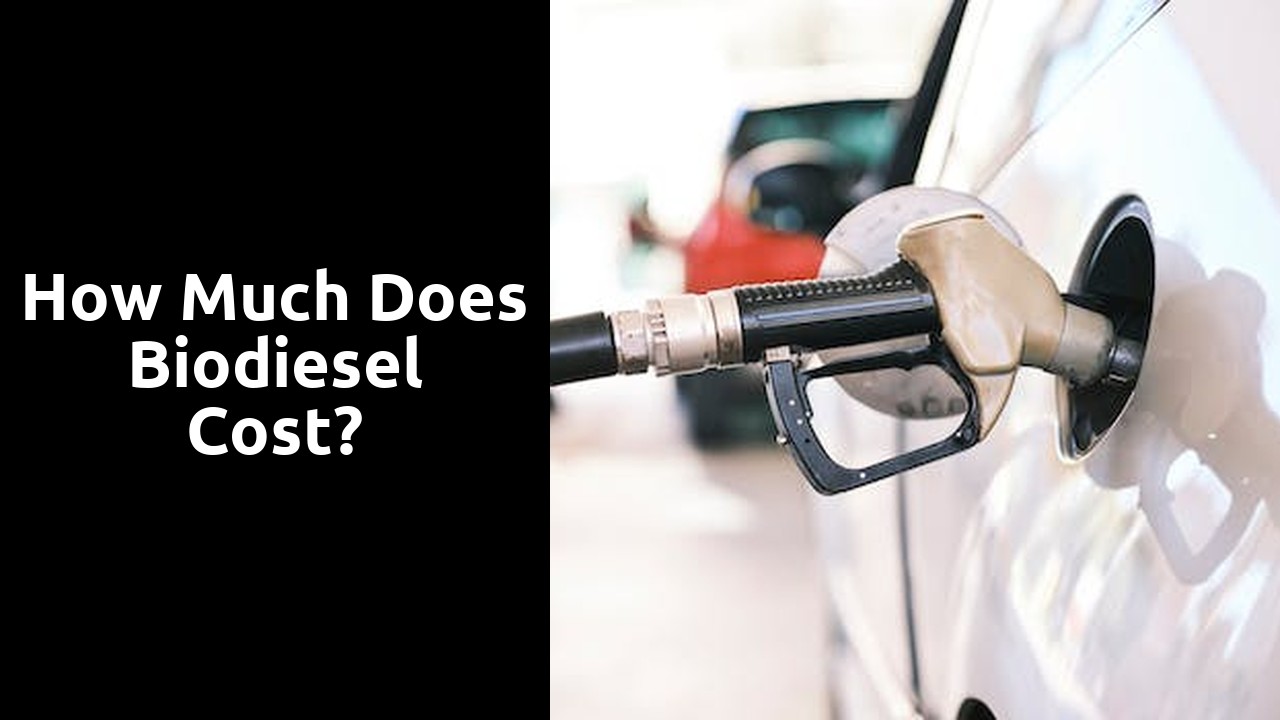
How much does biodiesel cost?
Understanding the economics of biodiesel
In recent years, the production and use of biodiesel have gained significant attention as an alternative to conventional fossil fuels. The economics of biodiesel, however, remain a complex and multifaceted subject that requires careful analysis. One of the primary factors affecting the economics of biodiesel is the cost of feedstock, which can vary depending on factors such as availability and demand. Additionally, the technology involved in the production of biodiesel, including the equipment and processes used, can significantly impact the overall cost.
Furthermore, the price of biodiesel is also influenced by market dynamics and government policies. Fluctuations in the price of petroleum, for instance, can directly impact the demand and pricing of biodiesel. Moreover, government regulations and incentives, such as tax credits or blending mandates, can play a crucial role in the economics of biodiesel by affecting both production costs and market demand. Understanding these various factors and their interplay is essential for grasping the intricacies and challenges of the biodiesel industry from an economic standpoint.
Factors that influence the cost of biodiesel production
The cost of biodiesel production is influenced by various factors. One crucial factor is the cost of feedstock or raw materials. The availability and price of feedstock, such as vegetable oils, animal fats, or waste cooking oils, can significantly impact the overall cost of producing biodiesel. Fluctuations in these prices can be driven by factors like weather conditions affecting crop yields, market demand and supply dynamics, or government policies related to agriculture and biofuel production.
Another influential factor is the energy consumption during the production process. Biodiesel production involves several energy-intensive steps, such as heating, mixing, and separation, which require electricity or other forms of energy. The efficiency of the production equipment and the energy sources used play a significant role in determining the cost. Technologies that reduce energy consumption or utilize renewable energy sources can contribute to lowering production costs. Additionally, the cost of transportation and logistics, including the delivery of feedstock to the production facility and the distribution of biodiesel to end users, can also impact the overall cost of biodiesel production.
Exploring the feedstock options for biodiesel production
When it comes to biodiesel production, the choice of feedstock is a crucial factor that significantly impacts the overall process and end product. There are various feedstock options available, each with its own advantages and limitations. One popular feedstock option is vegetable oils, such as soybean, canola, and palm oil. These oils are widely used in biodiesel production due to their high oil content and availability. However, concerns have been raised about the sustainability of using food crops as feedstock, as it may lead to competition for resources and potential food shortages.
Another alternative is animal fats and waste cooking oils, which can be used as feedstock for biodiesel production. This option not only reduces waste and environmental pollution but also represents a sustainable and cost-effective solution. Animal fats, such as tallow and lard, are abundant by-products of the meat processing industry. Similarly, waste cooking oils, sourced from restaurants and food processing facilities, can be recycled and converted into biodiesel. These feedstock options offer a viable alternative to vegetable oils and contribute to a more circular economy.
The impact of government policies on biodiesel pricing
One of the significant factors that influence biodiesel pricing is government policies. These policies play a crucial role in shaping the market for biodiesel by regulating its production, distribution, and consumption. Governments have implemented various strategies to incentivize the production and utilization of biodiesel, such as tax incentives, blending mandates, and subsidies. These initiatives aim to promote a shift towards cleaner and more sustainable energy sources, reduce greenhouse gas emissions, and enhance energy security. However, the impact of government policies on biodiesel pricing is multifaceted, with both positive and negative consequences. The effectiveness of these policies and their overall influence on biodiesel pricing vary across different countries and regions.
Analyzing the fluctuating prices of biodiesel in the market
The biodiesel market has witnessed a series of price fluctuations in recent years, leaving industry experts and investors analyzing the underlying factors driving these changes. While biodiesel prices are influenced by multiple variables, the primary factor often cited is the volatility in feedstock prices. Biodiesel is typically produced from vegetable oils, animal fats, or other renewable resources, and any significant shifts in the availability or cost of these raw materials can have a significant impact on the final price of biodiesel. Additionally, changes in government regulations, such as the imposition of taxes or the implementation of subsidies, can also disrupt the market and contribute to the price fluctuations. As a result, industry players must closely monitor these factors to navigate the unpredictable nature of the biodiesel market.
Comparing the cost of biodiesel with traditional fossil fuels
Biodiesel has gained significant attention in recent years as a potential alternative to traditional fossil fuels. One of the key factors that has led to this growing interest is its cost-effectiveness compared to conventional fuels. Due to advancements in technology and increasing production, the cost of biodiesel has become more competitive with traditional fossil fuels, making it a viable option for a greener energy source.
When comparing the cost of biodiesel with traditional fossil fuels, it is important to consider various factors. First and foremost, the price of biodiesel can be influenced by the cost of feedstock, which includes raw materials such as vegetable oils or animal fats. As these feedstocks are subject to fluctuations in agricultural markets, the cost of biodiesel production can vary accordingly. On the other hand, traditional fossil fuels are primarily dependent on the price of crude oil, which is influenced by geopolitical factors, supply and demand dynamics, and other market forces. Therefore, the cost of biodiesel and fossil fuels can fluctuate differently based on the underlying factors affecting their respective industries.
Related Links
What are the disadvantages of biodiesel?Why can't we use biodiesel?